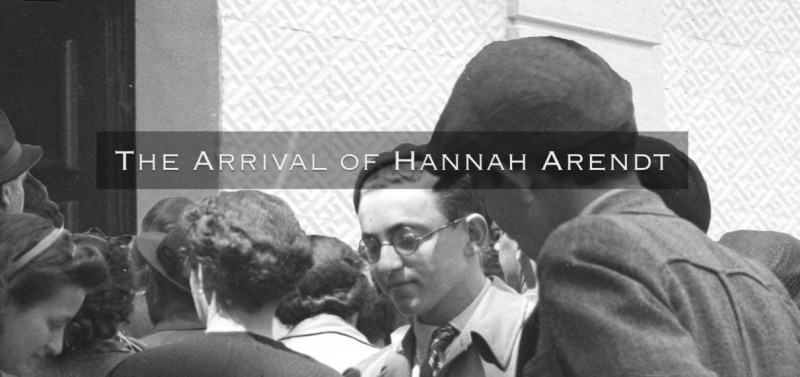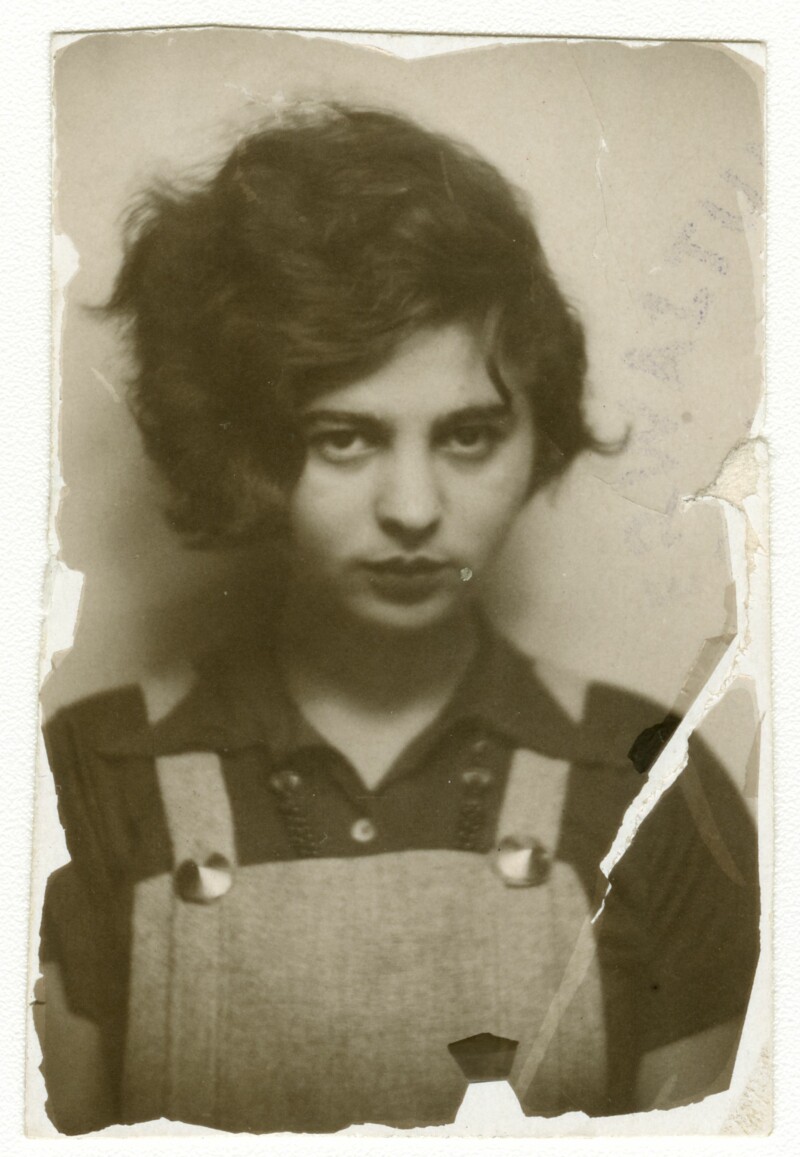
The Arrival of Hannah Arendt
This film describes the arrival of Hannah Arendt - a Jewish, German-American political theorist and publicist - in New York and her reflections on flight and helping people start over.

Wir sind ohne Geld. Ohne Freunde. Ohne Verbindungen. Ohne Hoffnung. Fahrgeld fehlt. Schuhe fehlen. Medizin für Stephen. 11Mascha Kalékos Sohn Evjatar Alexander Michael Vinaver, dessen Name im Exil in Steven Vinaver (1936-1968) geändert wurde. fehlt. Schule wird ihn nicht halten, wenn wir nicht zahlen können. Verfluchtes Geld. Demütigend, keines zu haben. Oh, wie die ‚Freunde‘ weichen, wie von Pestkranken. Mittelmäßigkeit ist meist mit Ellbogenkraft verbunden. Chemjo 22Mascha Kalékos Ehemann, der Musiker Chemjo Vinaver (1895–1973). ist ein Genie. Er ist weltfremd. Er kann nur Musik machen. Kein Business. Oh! Liebster Chemjo! Geld haben ist nicht schön. Aber Geld nicht haben ist schrecklich. Ein Bankkonto ist eine gute Vorbeugung gegen Depression.
[…]
Nun sind Ferien. Wie ich die Schule für ihn vermisse. Hitze. Und wir müssen packen, bald haben wir auch keine Wohnung mehr. Noch nie waren wir so “refugees” wie jetzt.
Selbst die Pfandleiher scheinen sich verschworen zu haben. Wenn wir kommen, ist zu. Mit gezähltem Fahrgeld reisen wir ins jüdische Forum. Wenn wir uns aber verfahren? Organisierte Wohlfahrt macht die Menschen verantwortungslos dem leidenden Einzelwesen gegenüber. Sie haben ihren Beitrag gezahlt. Ihr Gewissen ist rein. Du verrecke. Warum bist du nicht successful? Wobei success – nur Geld heißt.
[…]
Ich entfliehe. Bücher. Nietzsche, Heine, Wolfe, Steinbeck, Whitman.
Ich glaube nicht, daß wir hier je zur Ruhe kommen.
“We are without money. Without friends. Without connections. Without hope. No fare. No shoes. No medicine for Stephen. 11Mascha Kaléko’s son Evjatar Alexander Michael Vinaver, whose name was changed in exile to Stephen Vinaver (1936-1968). School won’t hold him if we can’t pay. Bloody money. It’s humiliating not to have any. Oh, how the friends depart, like from a plague. Mediocrity is usually associated with ruthlessness. Chemjo 22Macha Kaléko’s husband, the musician Chemjo Vinaver (1895-1973). is a genius. He is quixotic. He can only make music. No business. Oh! Dearest Chemjo! Having money is not nice. But not having money is terrible. A bank account is a great way to prevent depression.
[…]
Now it’s holiday time. How I miss school for him. Heat. And we have to pack, soon we won’t have a place to live either. We’ve never been “refugees” as we are now.
Even the pawnbrokers seem to have conspired. When we come, it’s closed. With counted fare we travel to the Jewish Forum. But what if we get lost? Organized welfare makes people irresponsible towards the suffering individual. They maid their contributions. Their conscience is clear. You go and die! Why aren’t you successful? And success means only money.
[…]
I’m escaping. Books. Nietzsche, Heine, Wolfe, Steinbeck, Whitman.
I don’t think we’ll ever rest easy here.”
Mascha Kaléko (1907-1975) was a poet. She was born in western Galicia (today Poland). After the outbreak of World War I, her family fled to Germany out of fear of anti-Jewish pogroms. Mascha Kaléko was seven years old. Early on she followed her vocation as a poet and mingled in the Berlin artistic milieu. Many of her poems deal with everyday life in Berlin. In 1935, however, the National Socialists imposed a ban on Kaléko. At first she did not want to leave Berlin, but in 1938 the situation became unbearable: she fled to New York with her second husband, the musician Chemjo Vinaver, and her young son. The family found it difficult to gain a foothold in New York. Kaléko finds small jobs and writes for the German-Jewish emigrant newspaper Aufbau, among others. In 1945, her book of poetry “Verses for Contemporaries” is published in the USA in German. In 1959 she and her husband moved to Israel.
In the works that we show in our archive, Kaléko deals with her experiences of refugeedom, her homesickness for Berlin, and her identity as a Jew, refugee, poet, and emigrant. The rupture that the loss of language as a result of emigration to the USA meant especially for her as a poet can be felt in many of her poems.
In the diary entry of June 20, 1941, Kaléko writes about her oppressive material worries. Because she and her husband Chemjo Vinaver initially find it difficult to find adequately paid work and jobs, the family is dependent on the help of welfare organizations, whose toughness seems inhuman to her. German and American literature offers her distraction from her worries.
Kaléko, Mascha, 1941: Diary entry, 20 June 1941.
Partly published in:
Zoch-Westphal, Gisela, 1987: Aus den sechs Leben der Mascha Kaléko. Berlin: Arani. Pp. 120-121.